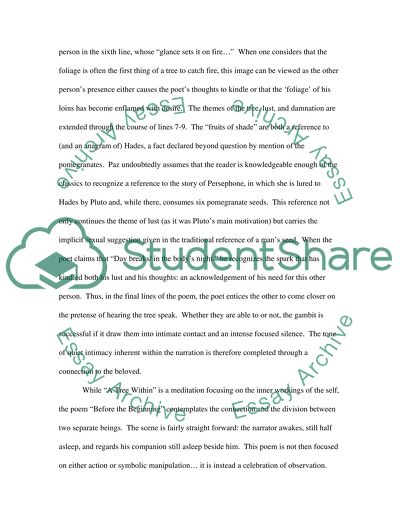Cite this document
(“The Poetry of Octavio Paz Essay Example | Topics and Well Written Essays - 1750 words”, n.d.)
The Poetry of Octavio Paz Essay Example | Topics and Well Written Essays - 1750 words. Retrieved from https://studentshare.org/literature/1523201-an-analysis-of-the-poetry-of-octavio-paz
The Poetry of Octavio Paz Essay Example | Topics and Well Written Essays - 1750 words. Retrieved from https://studentshare.org/literature/1523201-an-analysis-of-the-poetry-of-octavio-paz
(The Poetry of Octavio Paz Essay Example | Topics and Well Written Essays - 1750 Words)
The Poetry of Octavio Paz Essay Example | Topics and Well Written Essays - 1750 Words. https://studentshare.org/literature/1523201-an-analysis-of-the-poetry-of-octavio-paz.
The Poetry of Octavio Paz Essay Example | Topics and Well Written Essays - 1750 Words. https://studentshare.org/literature/1523201-an-analysis-of-the-poetry-of-octavio-paz.
“The Poetry of Octavio Paz Essay Example | Topics and Well Written Essays - 1750 Words”, n.d. https://studentshare.org/literature/1523201-an-analysis-of-the-poetry-of-octavio-paz.


